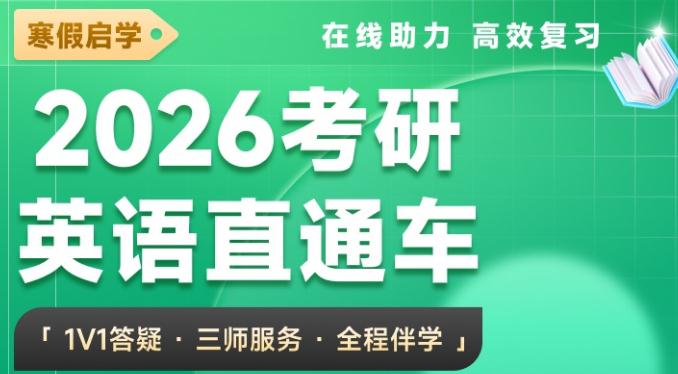1998-2022 ChinaKaoyan.com Network Studio. All Rights Reserved. 滬ICP備12018245號
華東師范大學政治學系新聞與傳播研究生導師:吳冠軍
華東師范大學政治學系新聞與傳播研究生導師吳冠軍介紹如下:
吳冠軍,字子極,號仁軒、銘幽,吳縣人。文革末年生于上海,當過專欄作家、商業網絡公司的首席執行官……洗盡浮世之鉛華后,負笈大洋洲、獲得澳大利亞墨納士大學(Monash University)哲學博士,現為華東師范大學歐陸政治哲學研究所所長、研究員,華東師范大學政治學系教授、博士生導師、系學術委員
會副主任,并兼任《華東師范大學學報》英文版執行主編、上海紐約大學雙聘教授。2011年進入華東師范大學“英才計劃”,2012進入“浦江人才計劃”,2013年入選“曙光學者”。個人學術著作有《多元的現代性》、《日常現實的變態核心》、《愛與死的幽靈學》、《現時代的群學》、《巨龍幻想》、《第
十一論綱》、《激活你的日常》、《后人類紀的共同生活》等,其中,《愛與死的幽靈學》曾榮獲2007-2008“雙年度中國•后天文化學術獎”之“學術獎”,《現時代的群學》被《東方早報》推薦為“2011年讀到的最好的漢語原創學術著作”,《第十一論綱》入選《深港書評》“2015年度100本好書”,《激活
你的日常》入選《南方都市報》“2017年度十大好書”,英文著作《巨龍幻想》(The Great Dragon Fantasy)被當代最有影響的哲學家齊澤克(Slavoj Žižek)教授形容為一部“爆炸性的非凡著作”。主要研究方向為政治哲學、精神分析、中國古典思想。與書卷相伴,以天下賢良為友,便是夙志。電子郵箱:
guanjun.wu@gmail.com; gjwu@dlps.ecnu.edu.cn
教育背景
哲學博士(Ph. D),澳大利亞墨納士大學(Monash University)
法學學士,華東理工大學
學術崗位
華東師范大學歐陸政治哲學研究所所長、研究員
華東師范大學政治學系教授、博士生導師
學術與社會兼職
上海政治學會常務理事
上海市歐美同學會理事、副會長
上海中青年知識分子聯誼會理事
上海紐約大學(NYU Shanghai)雙聘教授
墨納什大學(Monash University)人文學院客座研究員
復旦大學社會科學高等研究院客座研究員
教育部人文社會科學重點研究基地華東師范大學中國現代思想文化研究所研究員
華東師范大學歐陸前沿思想研究創新團隊負責人
華東師范大學政治學系學術委員會副主任委員
華東師范大學師資隊伍建設委員會委員
華東師范大學無黨派高級知識分子聯誼會理事、副會長
歐美同學會華東師范大學分會理事、副會長
《海歸學人》主編
《ECNU Review》(《華東師范大學學報》英文版)執行主編
學術叢書“左翼前沿思想叢書”主編(中央編譯出版社)
學術叢書“政治哲學譯叢”學術編委(商務印書館)
學術叢書“拜德雅”學術編委(重慶大學出版社、西南師范大學出版社)
學術叢書“新迷影叢書”學術編委(河南大學出版社)
學術輯刊《復旦政治哲學評論》學術委員(上海人民出版社)
中信出版社特聘專家顧問團委員
研究領域
政治哲學;當代歐陸思想;技術哲學;精神分析;中國古典思想之重釋;當代中國思想、中國道路研究
教授課程
哲學導論(本科生公選課)
歐陸前沿思想(本科生公選課)
意識形態理論(本科生公選課)
政治意識形態(本科生公選課)
政治哲學(研究生專業課)
歐陸政治哲學(研究生通識課)
Chinese Political Philosophy(國際研究生專業課,英語授課)
Contemporary Chinese Political Thought(上海紐約大學課程,英語授課)
榮譽與資助
(1)第三屆“知聯獎”先進個人獎,2019
(2)上海市哲學社會科學優秀成果獎一等獎,2018;
(3)上海市哲學社會科學優秀成果獎二等獎,2018;
(4)賀麟青年哲學獎(首屆)一等獎,2017;
(5)華東師范大學優秀研究生教學獎,2017;
(6)人大復印報刊資料重要轉載來源作者(首屆),2017;
(7)《南方都市報》年度十大好書,2017;
(8)華東師范大學校園日主題演講最佳臺風獎,2017;
(9)上海市寫作學會古詩文大匯一等獎,2016;
(10)華東師范大學杰出新人,2016;
(11)華東師范大學理論工作獎,2014;
(12)上海市“曙光學者”,2013;
(13)華東師范大學“紫江青年學者”,2013;
(14)上海市“浦江人才”,2012;
(15)華東師范大學“英才學者”,2011。
主持科研項目(省部級以上)
(1)國家社會科學基金2018年度重大項目《后現代主義哲學發展路徑與新進展研究》
(2)國家社會科學基金2013年度青年項目《當代激進左翼政治哲學研究》
(3)上海市2013年度“曙光學者”研究項目《阿甘本政治思想研究》
(4)教育部2012年度哲學社會科學研究后期資助項目《陷于施米特與羅爾斯間的政治之域》
(5)上海市2012年度“浦江人才計劃”項目《“后結構主義”之后的政治哲學》
學術發表成果
中文著作
1、《后人類紀的共同生活:正在到來的愛情、消費與人工智能》(上海文藝出版社,2018)
2、《激活你的日常:吃喝玩樂的哲學視野》(上海文藝出版社,2017)
(《南方都市報》“2017年度十大好書”)
3、《第十一論綱:介入日常生活的學術》(商務印書館,2015)
(《深港書評》“2015年度100本好書”)
4、《現時代的群學:從精神分析到政治哲學》(中國法制出版社,2011)
(《東方早報》“2011年讀到的最好的漢語原創學術著作”)
5、《愛與死的幽靈學:意識形態批判六論》(吉林出版集團,2008)
(榮獲2007-2008“雙年度中國•后天文化學術獎”之“學術獎”)
6、《日常現實的變態核心:后“9•11”時代的意識形態批判》(新星出版社,2006)
7、《多元的現代性:從“9•11”災難到汪暉“中國的現代性”論說》(上海三聯書店,2002)
英文著作
The Great Dragon Fantasy: A Lacanian Analysis of Contemporary Chinese Thought (World Scientific, 2014)
譯著
1、巴迪歐、齊澤克:《當下的哲學》(和藍江教授合譯,中央編譯出版社,2017)
2、阿甘本:《神圣人:至高權力與赤裸生命》(中央編譯出版社,2016)
(《深港書評》“2016年度100本好書”)
編著
1、Ruiquan Gao and Guanjun Wu (eds.), New Waves in China's Philosophical Studies (World Scientific, 2018)
2、Ruiquan Gao and Guanjun Wu (eds.), Chinese History and Literature: New Ways to Examine China’s Past (World Scientific, 2018)
3、Ruiquan Gao and Guanjun Wu (eds.), Studies on Contemporary China (World Scientific, 2018)
4、Ruiquan Gao and Guanjun Wu (eds.), China’s Education Reform: Current Issues and New Horizons (World Scientific, 2018)
近五年中文期刊論文(權威與CSSCI刊物)
1、吳冠軍:《重思戰爭與和平——霍布斯、康德、施米特、羅爾斯的政治哲學史重疏》,《同濟大學學報(社會科學版)》,2019年02期。
2、吳冠軍:《后人類狀況與中國教育實踐:教育終結抑或終身教育?——人工智能時代的教育哲學思考》,《華東師范大學學報(教育科學版)》,2019年第1期。
3、吳冠軍:《在黑格爾與巴迪歐之間的“愛”——從張念的黑格爾批判說起》,《華東師范大學學報(哲學社會科學版)》,2019年第1期。
4、吳冠軍:《神圣人、機器人與“人類學機器”——二十世紀大屠殺與當代人工智能討論的政治哲學反思》,《上海師范大學學報(哲學社會科學版)》,2018年第6期。
5、吳冠軍:《政治秩序及其不滿:論拉康對政治哲學的三重貢獻》,《山東社會科學》,2018年第10期(人大復印報刊資料《外國哲學》2019年第1期全文轉載;人大復印報刊資料《政治學文摘》2019年第1期摘要轉載)。
6、吳冠軍:《現代性的“真誠性危機”——當代馬克思主義的一個被忽視的理論貢獻》,《江蘇行政學院學報》,2018年第5期。
7、吳冠軍:《電影院里的“非人”——重思“電影之死”與“人之死”》,《文藝研究》,2018年第8期。
8、吳冠軍:《家庭結構的政治哲學考察——論精神分析對政治哲學一個被忽視的貢獻》,《哲學研究》,2018年第4期(人大復印報刊資料《政治學文摘》2018年第3期摘要轉載)。
9、吳冠軍:《話語政治與怪物政治——透過大眾文化重思政治哲學》,《探索與爭鳴》,2018年第3期(人大復印報刊資料《外國哲學》2018年第7期全文轉載;人大復印報刊資料《哲學文摘》2018年第4期摘要轉載)。
10、吳冠軍:《話語政治與死亡政治——“狼人殺”與政治哲學》,《南京社會科學》,2018年第3期。
11、吳冠軍:《猿熟馬馴為哪般:對<西游記>的拉康主義-阿甘本主義分析》,《文藝理論研究》, 2018年第2期。
12、吳冠軍:《“非人”的三個銀幕形象——后人類主義遭遇電影》,《電影藝術》,2018年第1期(人大復印報刊資料《影視藝術》2018年第5期全文轉載)。
13、吳冠軍:《“只是當時已惘然”——對<色·戒>十年后的拉康主義重訪》,《上海大學學報(社會科學版)》,2018年第1期。
14、吳冠軍:《人工智能與未來社會:三個反思》,《探索與爭鳴》,2017年第10期。
15、吳冠軍:《生命、真理與虛無主義政治:黑格爾“日蝕”下的歐陸思想脈絡新解》,《南京社會科學》,2017年第4期(人大復印報刊資料《外國哲學》2017年第11期全文轉載)。
16、吳冠軍:《作為死亡驅力的愛:精神分析與電影藝術之親緣性》,《文藝研究》,2017年第5期(人大復印報刊資料《影視藝術》2017年第8期全文轉載)。
17、吳冠軍:《齊澤克與科耶夫:辯證法的隱秘學脈》,《同濟大學學報(社會科學版)》,2017年第3期(人大復印報刊資料《哲學原理》2017年第10期全文轉載)。
18、吳冠軍:《再探代議民主的規范性困局》,《當代世界與社會主義》,2017年第3期(人大復印報刊資料《政治學》2017年第11期全文轉載;人大復印報刊資料《政治學文摘》2018年第1期摘要轉載)。
19、吳冠軍:《閾點中的民主:2016美國總統大選的政治學分析》,《探索與爭鳴》,2017年第2期。
20、吳冠軍:《絕對與事件:齊澤克是一個怎樣的黑格爾主義者》,《蘇州大學學報(哲學社會科學版)》,2017年第4期。
21、吳冠軍:《馬基雅維利政治及其激進溢出》,《上海大學學報(社會科學版)》,2017年第1期(人大復印報刊資料《影視藝術》2017年第4期全文轉載)。
22、吳冠軍:《德波的盛景社會與拉康的想像秩序:兩條批判性進路》,《哲學研究》,2016年第8期(人大復印報刊資料《外國哲學》2016年第10期全文轉載;人大復印報刊資料《哲學文摘》2016年第4期摘要轉載)。
23、吳冠軍:《重新激活“群眾路線”的兩個關鍵問題:為什么與如何》,《政治學研究》,2016年第6期(人大復印報刊資料《中國共產黨》2017年第5期全文轉載)。
24、吳冠軍:《從英國脫歐公投看現代民主的雙重結構性困局》,《當代世界與社會主義》,2016年第6期(人大復印報刊資料《國際政治》2017年第3期全文轉載;《中國社會科學文摘》2017年第6期全文轉載;人大復印報刊資料《政治學文摘》2017年第2期摘要轉載)。
25、吳冠軍:《“我們所擁有的唯一時間”——透析阿甘本的彌賽亞主義》,《山東社會科學》,2016年第9期。
26、吳冠軍:《女性的凝視:對央視86版<西游記>的一個拉康主義分析》,《文藝理論研究》,2016年第6期。
27、吳冠軍:《辯證法之疑:黑格爾與科耶夫》,《社會科學家》,2016年第12期。
28、吳冠軍:《“歷史終結”時代的“伊斯蘭國”:一個政治哲學分析》,《探索與爭鳴》,2016年第2期(人大復印報刊資料《國際政治》2016年第6期全文轉載)。
29、吳冠軍:《“大他者”的喉中之刺:精神分析視野下的歐洲激進政治哲學》,《人民論壇•學術前沿》,2016年第6期(人大復印報刊資料《哲學文摘》2016年第3期摘要轉載)。
30、吳冠軍:《齊澤克的“壞消息”:政治主體、視差之見和辯證法》,《國外理論動態》,2016年第3期。
31、吳冠軍:《從精神分析視角重新解讀西方“古典性”——關于“雅典”和“耶路撒冷”兩種路向的再思考》,《南京社會科學》,2016年第6期(人大復印報刊資料《外國哲學》2016年第12期全文轉載)。
32、吳冠軍:《有人說過“大他者”嗎?——論精神分析化的政治哲學》,《同濟大學學報(社會科學版)》,2015年第5期。
33、吳冠軍:《“卡拉OK式禮樂”:卡拉OK實踐與現代性問題》,《文藝理論研究》,2015年第4期。
34、吳冠軍:《“生命政治”論的隱秘線索:一個思想史的考察》,《教學與研究》,2015年第1期。
35、吳冠軍:《生命政治:在福柯與阿甘本之間》,《馬克思主義與現實》,2015年第1期。
36、吳冠軍:《價值多元時代的自由主義困境:從伯林的“終身問題”談起》,《人民論壇•學術前沿》,2015年第4期。
37、吳冠軍:《認真對待德性:自由心證的法理學再探討》,《探索與爭鳴》,2015年第5期。
38、吳冠軍:《“人民”的悖論:阿甘本問題與“群眾路線”》,《學術月刊》,2014年第10期(人大復印報刊資料《政治學》2015年第1期全文轉載)。
39、吳冠軍:《阿甘本論神圣與褻瀆》,《國外理論動態》,2014年第3期(人大復印報刊資料《外國哲學》2014年第5期全文轉載)。
40、吳冠軍:《生命權力的兩張面孔》,《哲學研究》,2014年第8期(人大復印報刊資料《外國哲學》2014年第10期全文轉載;人大復印報刊資料《哲學文摘》2014年第4期摘要轉載)。
41、吳冠軍:《“三國殺”與政治哲學》,《讀書》,2014年第5期。
42、吳冠軍:《施特勞斯與政治哲學的兩個路向》,《華東師范大學學報》,2014年第5期(人大復印報刊資料《外國哲學》2014年第12期全文轉載)。
43、吳冠軍:《全民審美時代下藝術的古典救贖》,《探索與爭鳴》,2014年第3期。
44、吳冠軍:《“群眾路線”的政治學》,《同濟大學學報(社會科學版)》,2014年第3期。
45、吳冠軍:《“當下性”與歷史主義之雙重面向》,《華東師范大學學報》,2014年第2期。
46、吳冠軍:《“永永遠遠是龍的傳人”:新時期“中國性”之構建的一個拉康主義分析》,《文藝理論研究》,2014年第1期。
英文論文
1、Guanjun Wu, “Debord contra Lacan: Two Critical Theorizations of Image in 20th-Century French Thought,”ECNU Review, Volume 5, 2017.
2、Guanjun Wu, “Narrating a Fantasmatic Unity: On the Contemporary Sinophone Discourse of China's Civilizational Subjectivity”, Frontier of Philosophy in China, Volume 11, issue 4 (November 2016).
3、Guanjun Wu, “The Lacanian Imaginary and Modern Chinese Intellectuality”, Social Imaginaries, Volume 2, issue 1 (Spring 2016).
4、Guanjun Wu, “A (Psycho)Analysis of China’s New Nationalism”, in Leigh Jenco (ed.), Chinese Thought as Global Theory: Diversifying Knowledge Production in the Social Sciences and Humanities, Albany: State University of New York, 2016.
5、Guanjun Wu, “A Lacanian (Psycho)Analysis of the Post-Maoist Popular and Intellectual Discourse on Enlightenment,” ECNU Review, Volume 3, 2014.
6、Guanjun Wu, “A Lacanian Analysis of the Post-Maoist Structuration of Chineseness,” Theoretical Studies in Literature and Art, Volume 34, issue 1, 2014.
7、Guanjun Wu, “China’s New Nationalism and Its Obscene Core,” History Research, Volume 2, issue 8, August 2012.
8、Guanjun Wu, “What Makes Contemporary Chinese Thought Unique”, Fudan Journal of the Humanities and Social Sciences, Volume 5, issue 3, September 2012.
9、Guanjun Wu, “Hegel’s Two Faces”, ECNU Review, Volume 1, 2012.
10、Guanjun Wu, “Contemporary Chinese Social and Political Thought”, in Gerard Delanty and Stephen P. Turner (eds.), Routledge International Handbook of Contemporary Social and Political Theory, New York: Routledge, 2011, pp.361-73.
專著《The Great Dragon Fantasy》所獲部分國際學界同行評議
Guanjun Wu wrote an extraordinary book which brings together the Lacanian psychoanalytic tradition with the intimate knowledge of Chinese intellectual scene. The mixture is explosive, since it throws a new light not only on Chinese situation but also on psychoanalytic theory, bringing out its force to
uncover new dimensions as well as its limitations. In this book, East meets West in a way which profits and changes both. Guanjun Wu combines cold analytic dissection with passionate emancipatory engagement.
Slavoj Žižek, Senior Researcher at the Institute for Sociology and Philosophy, University of Ljubljana
吳冠軍寫作了一部非凡的著作,將拉康主義精神分析傳統置入中國思想圖景的私密知識中。這個并構是爆炸性的,蓋因其射出了一道新的光,不僅照亮了中國情況,并且也照亮了精神分析理論,尤其對于后者,這道光芒將精神分析理論的力量推進到發現諸種全新向度,以及揭示出它的諸種局限。在此書中,東方
以以下方式遭遇西方:該遭遇使兩者同時獲益,并使它們都發生了改變。吳冠軍在冷靜的分析性解剖之中,融合有熱烈的解放性的介入。
斯拉沃熱·齊澤克,盧布爾雅那大學社會學與哲學研究所高級研究員
What do Chinese intellectuals want? Breaking with conventional historical, political, and sociological presumptions, Guanjun Wu boldly employs Lacanian psychoanalysis to explore the fantasies structuring post-Maoist intellectual discourse. This is an essential book not only for those interested in psychoanalysis but for anyone concerned with the dynamic of freedom and fullness, trauma and greatness shaping debates in contemporary China.
Jodi Dean, Donald R. Harter '39 Professor of Humanities and Social Sciences at Hobart and William Smith Colleges
中國知識分子想要什么?在斷開傳統的諸種歷史、政治與社會學之推定后,吳冠軍果敢地運用拉康主義精神分析,來檢查那構塑后毛主義思想話語的諸種幻想。這部著作不但對于對精神分析感興趣的讀者所必讀;并且,就自由與完整性、創傷與偉大性這兩組構塑當代中國思想論爭之動態張力的批判性分析而言,這
部著作亦是一個根本性的作品。
茱迪·狄恩,哈伯特與威廉斯密學院人文社會科學Donald R. Harter '39講席教授
The Great Dragon Fantasy represents a fascinating and original application of Lacanian psychoanalytic precepts to the main currents of contemporary Chinese political thought: New Enlightenment, the New Left Wing (neo-Maoism), neo-Confucianism, and Chinese Nationalism. Throughout this study,
Guanjun Wu displays a masterful grasp of Eastern and Western intellectual traditions – an understanding and breadth that is, to my knowledge, simply unmatched. With this book, Wu has established himself as a significant contributor to the central theoretical debates of the twenty-first century as well
as an important intellectual mediator on both sides of the East-West divide. When all is said and done, The Great Dragon Fantasy takes important steps in rendering that divide less cavernous.
Richard Wolin, Distinguished Professor of History and Political Science, The Graduate Center, City University of New York
《巨龍幻想》將拉康主義精神分析技術原創性地引入到對當代中國政治思想之主流思潮(新啟蒙主義、新左翼、新毛澤東主義、新儒家、以及中國式民族主義)的分析中。這個結合無比引人入勝。在這項研究中,吳冠軍展示了對東方與西方思想傳統的一個大師級掌握,這一理解、以及它的廣度,在我的知識視野
里,純然前所未見。通過這本書,吳冠軍已經將自己確立為對二十一世紀核心思想論爭的一個重要貢獻者,并且同時站在東方/西方劃分之兩邊陣營上、成為一個重要的思想調介人。當一切可說的都說了、一切可做的都做了之后,《巨龍幻想》仍然邁出了重要的步伐,使那個劃分變得裂口更小。
理查德·沃林,紐約城市大學研究生院歷史與政治科學杰出教授
Guanjun Wu's work is an original and forceful analysis of the Chinese intellectual scene, and certainly one of the most controversial contributions to the field. Wu's combination of civilizational and psychoanalytical perspectives throws light on a background often neglected by Western observers, and
reminds us that Chinese debates on the roads to modernity are not only about the construction of political and economic institutions. Those who prefer a different interpretation of China's encounter with itself and the West will have to come to grips with Wu's arguments. The book is essential reading for
students of contemporary China and its ongoing transformation.
Johann P. Arnason, Emeritus Professor of sociology at La Trobe University
吳冠軍的研究是關于中國思想場域的一個原創性的、強有力的分析,并且毫無疑問是就該領域而言最會激起爭議的貢獻之一。吳氏將文明的視角與精神分析的視角結合在一起。這一結合照亮了為西方觀察者們所經常忽視的一個后設場景,并提醒我們關于通向現代性的道路的中國論爭,并不只是關于諸種政治制度
與經濟制度之建構。那些提議對中國遭遇自身與中國遭遇西方作一個別樣闡釋的學者,將不得不去解讀把握吳氏的論說。對于研究當代中國及其當下轉型的學生,此著是一部根本性的閱讀文獻。
約翰·阿納森,拉籌伯大學社會學榮休教授
The primary significance of Wu’s work is not its cultural analyses or assessments of developments in contemporary Chinese thought; rather, it is the fact that it is itself a signal indicator of a new development in contemporary Chinese thought, one that indicates a Cartesian turn and the possibility of
psychoanalysis. Such a turn happened elsewhere first, and was central to a new epistemic tradition that ultimately confronted China and provoked the crisis of Chinese consciousness.
Josef Gregory Mahoney, Professor of Political Philosophy and Critical Theory; Director of the International Center for Advanced Political Studies at East China Normal University
吳冠軍著作最根本的重要性不在于它對當代中國思想的諸種新發展所展開的文化分析或評價;而是在于它是這樣一個事實:它自身就是當代中國思想一個新發展的信號指示器。這個發展指向了一個笛卡爾主義的轉向,以及精神分析的可能性。這個轉向在其它地方先發生,并在一個新的認識論傳統中居于核心位置。
這個傳統最終將遭遇中國,并激起中國意識的危機。
約瑟夫·格里高利·馬奧尼,華東師范大學政治哲學與批判理論教授,政治學國際研究中心主任
Wu Guanjun’s book The Great Dragon Fantasy offers a stunning reinterpretation of contemporary Chinese thought that is sure to start many conversations in the years to come, both inside and outside China. Wu’s use of Lacanian psychoanalysis also offers a novel application of a method of
interpretation that has only recently been recognized for its insight into collective as well as personal manifestations of fantasy, otherness, and desire. The book is therefore original in both its approach and its subject matter.
Leigh Jenco, Professor in Political Theory at the London School of Economics and Political Science
吳冠軍的《巨龍幻想》一著提供了關于當代中國思想的一個不平凡的重新闡釋,毫無疑問,這個闡釋將會在未來的年月里在海內外,開啟出許多對話。吳氏對拉康主義精神分析的使用,也提供了一種闡釋方法的新奇運用,這個闡釋方法一直到最近,才被承認其對于幻想、他者性與欲望的集體與個人呈現的洞見。
因此,這本著作同時在它的進路與它的論述主題上,都具有著原創性。
李蕾,倫敦政治經濟學院政治理論教授
The Great Dragon Fantasy is a unique contribution to the literature on Chinese contemporary intellectuality, world philosophy studies, and China studies. […] It renders a theoretical breakthrough in Chinese studies of philosophy and contemporary intellectual thought. The Great Dragon Fantasy does not
only deal with textual and discourse studies, but it goes beyond their theoretical confines and seeks the hidden mechanisms for the changing contours of Chinese intellectual discourse in the post-Maoist era. It contributes not only to theories in China studies, but also the Lancanian psychoanalytic
theory on which The Great Dragon Fantasy is based.
《Frontier of Philosophy in China》(Volume 11, issue 4, November 2016)
對于當代中國思想、世界哲學研究和中國研究這幾個領域的研究而言,《巨龍幻想》做出了一個獨特的貢獻。……在哲學與當代思想的中國研究上它提供了一個理論性的突破。《巨龍幻想》不僅僅出來文本分析和話語分析,它還越出它們的理論性界定,探尋在后毛主義時代中國思想話語之變化面貌的諸種隱在機
制。它不僅對于中國研究的理論做出了貢獻,還對拉康主義精神分析理論做出了貢獻,而后者,正是《巨龍幻想》所扎根的基礎。
《中國哲學前沿》(第11卷第4期,2016年11月)
沉甸甸的問題:張汝倫、吳冠軍的現當代中國思想研究與全球地方化時代中國思想家的思想姿態。2014年張汝倫研究現代中國思想的力作《現代中國思想研究》發行增訂版……,引發我們思考很多重要的問題:意識形態批判何以必要?我們如何對待中西方傳統?在全球地方化時代中國思想家應該采取何種思想姿
態?……2014年青年學者吳冠軍出版英文著作《巨龍幻想:當代中國思想的一個拉康主義分析》,其主題正是意識形態批判:借助拉康、齊澤克的精神分析與意識形態批判技術,揭示“想像的共同體”的想像性質。
《上海學術報告2014(2014年度滬上中國哲學學科發展評議)》(上海人民出版社,2015)
來源未注明“中國考研網\考研信息網”的資訊、文章等均為轉載,本網站轉載出于傳遞更多信息之目的,并不意味著贊同其觀點或證實其內容的真實性,如涉及版權問題,請聯系本站管理員予以更改或刪除。如其他媒體、網站或個人從本網站下載使用,必須保留本網站注明的"稿件來源",并自負版權等法律責任。
來源注明“中國考研網”的文章,若需轉載請聯系管理員獲得相應許可。
聯系方式:chinakaoyankefu@163.com
- 2026考研英語全程班 6班
- 權威高配師資親授技巧,教研千錘百煉科學提分。直錄播課相結合精講互動二合一,專業團隊精細化作文批改。講練結合,隨學隨練穩步提升。支持試聽~
- 主講團隊:王江濤、譚劍波、董仲蠡、許聰杰、陳志超、潘赟、鄭艷彤、易熙人

掃碼關注
了解考研最新消息












